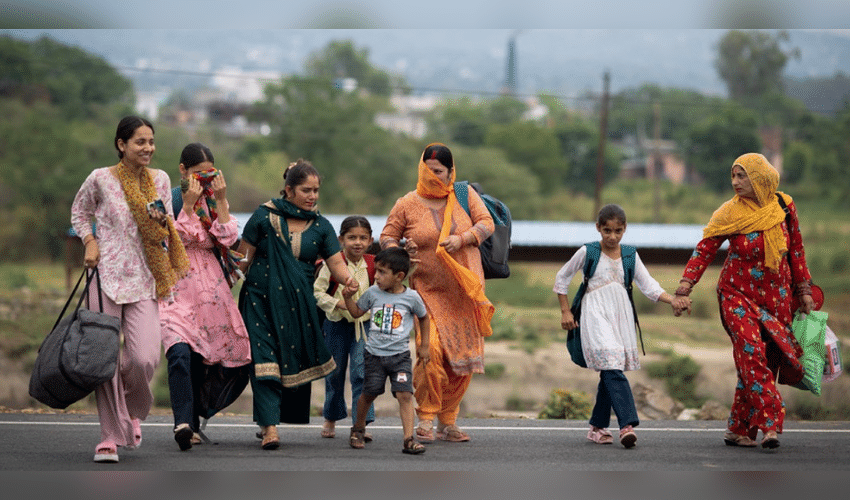Asia In News
Residents have been moved from the danger zone near India's border with Pakistan due to ongoing conflict.

JAMMU, India — Kalia Devi was among the many anxious civilians evacuated before dawn from the danger zone along India's northwestern border with Pakistan, as tensions between the two nuclear-armed nations escalated. India reports that at least 13 civilians have been killed and 59 wounded due to cross-border gunfire and shelling, while Pakistan claims that at least 31 of its citizens have died and around 50 have been injured from Indian airstrikes and artillery fire.
"I am filled with fear," said 50-year-old Devi, sitting on the steps of a college on the outskirts of Jammu city, which was once bustling with students just weeks ago. Devi, a daily laborer, had recently arrived with 15 relatives from Bihar, one of India's poorest states, seeking work in Akhnoor, a village near Jammu, located in the disputed Kashmir region administered by India.
"Our first priority is survival," she said. "If this conflict continues, we might have no choice but to leave." Hundreds of people like her were evacuated in buses on Wednesday from two border villages that have frequently been caught in crossfire. They were relocated to a college 20 km from the border, which has now been converted into a shelter for displaced residents.
On Thursday, explosions echoed through Jammu, with Indian military sources suspecting a Pakistani drone attack on the second day of intense fighting between the two countries. The situation has prompted calls for calm from global powers, including the US, Russia, and China, in this nuclear flashpoint region.
Indian authorities confirmed that the evacuation efforts were aimed at protecting civilian lives, according to an anonymous police officer. "The day before, gunfire could be heard for an hour at midnight and again at 4 am," evacuee Pratima Devi said. "I couldn't sleep because of the fear, but I slept soundly at the college."
Classrooms at the college were transformed into sleeping quarters with thin mattresses for around 400 evacuees. Indian authorities assigned two doctors to the site and arranged for basic meals. A nearby Hindu spiritual retreat was also converted into a shelter for hundreds, mostly women and children. "This is a border area, and because of the high risk of gunfire, we were moved here. We feel safe here," said 11-year-old Sameer Pawar in English. Most evacuees were farmers or daily laborers, earning on average less than $60 a month.



